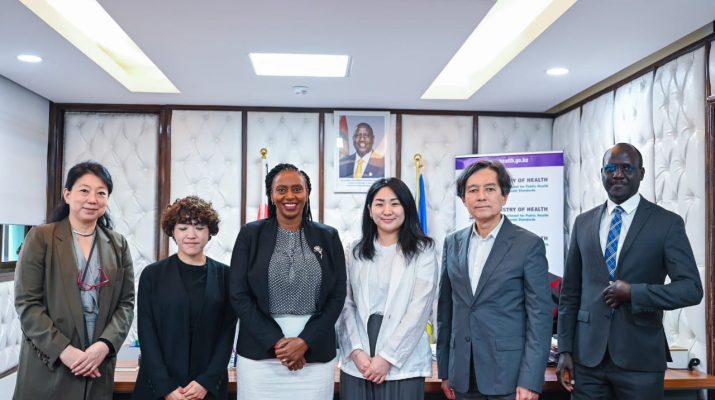By Angela Kibara
Kenya is significantly bolstering its efforts to combat malaria through an intensified partnership with Malaria No More Japan.
Principal Secretary for Public Health and Professional Standards, Mary Muthoni, recently held a pivotal meeting with the team, signalling a renewed commitment to collaborative action against the vector-borne disease.
This strategic engagement is designed to amplify the objectives of the Kenya Malaria Strategy 2023–2027.
According to the strategy document, the national plan sets ambitious targets, aiming to reduce malaria incidence and deaths by 80% and 90% respectively by 2027/28.
The collaboration with Malaria No More Japan is set to directly contribute to these goals by fostering targeted innovations, particularly in regions with a high burden of malaria.
A key focus of the partnership, as highlighted by the Ministry of Health’s statement, involves supporting ground-breaking research, such as the ongoing studies into the effectiveness of ceiling nets in Homa Bay County.
Furthermore, the collaboration aims to strengthen vital ties with the Kenya Medical Research Institute (KEMRI), a leading institution in health research across Africa.
This reinforced partnership, as explicitly stated by the Ministry of Health, will facilitate advancements in crucial areas including diagnostics, drug resistance surveillance, and the generation of robust, evidence-informed policymaking.
The Principal Secretary, Mary Muthoni, expressed strong confidence in the path forward.
“I am confident that the adoption and implementation of the strategy will propel the country towards the vision of a malaria-free Kenya,” she stated, a sentiment echoed in the foreword of the Kenya Malaria Strategy 2023–2027.
The partnership corresponds with Malaria No More Japan’s global mission: “to mobilize the political commitment, funding, and innovation required to achieve what would be one of the greatest humanitarian accomplishments – ending malaria within our generation.”
Their engagement in Kenya underscores their dedication to working with national governments to accelerate progress through strategic alliances and evidence-based interventions.
The Ministry of Health emphasized that this partnership extends beyond immediate malaria control.
It aligns seamlessly with Kenya’s broader national health agenda, particularly its pursuit of Universal Health Coverage (UHC) and enhanced health security goals, outlined in various government health sector plans.
By driving down malaria cases and improving diagnostic and surveillance capabilities, the initiative directly contributes to a healthier population and a more resilient health system capable of addressing future health challenges.

